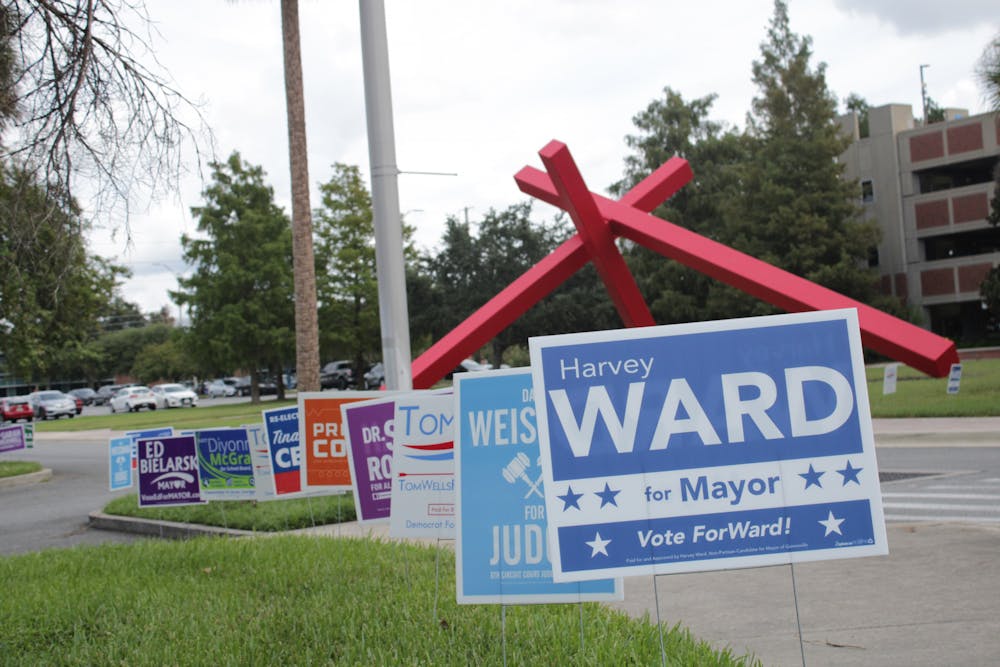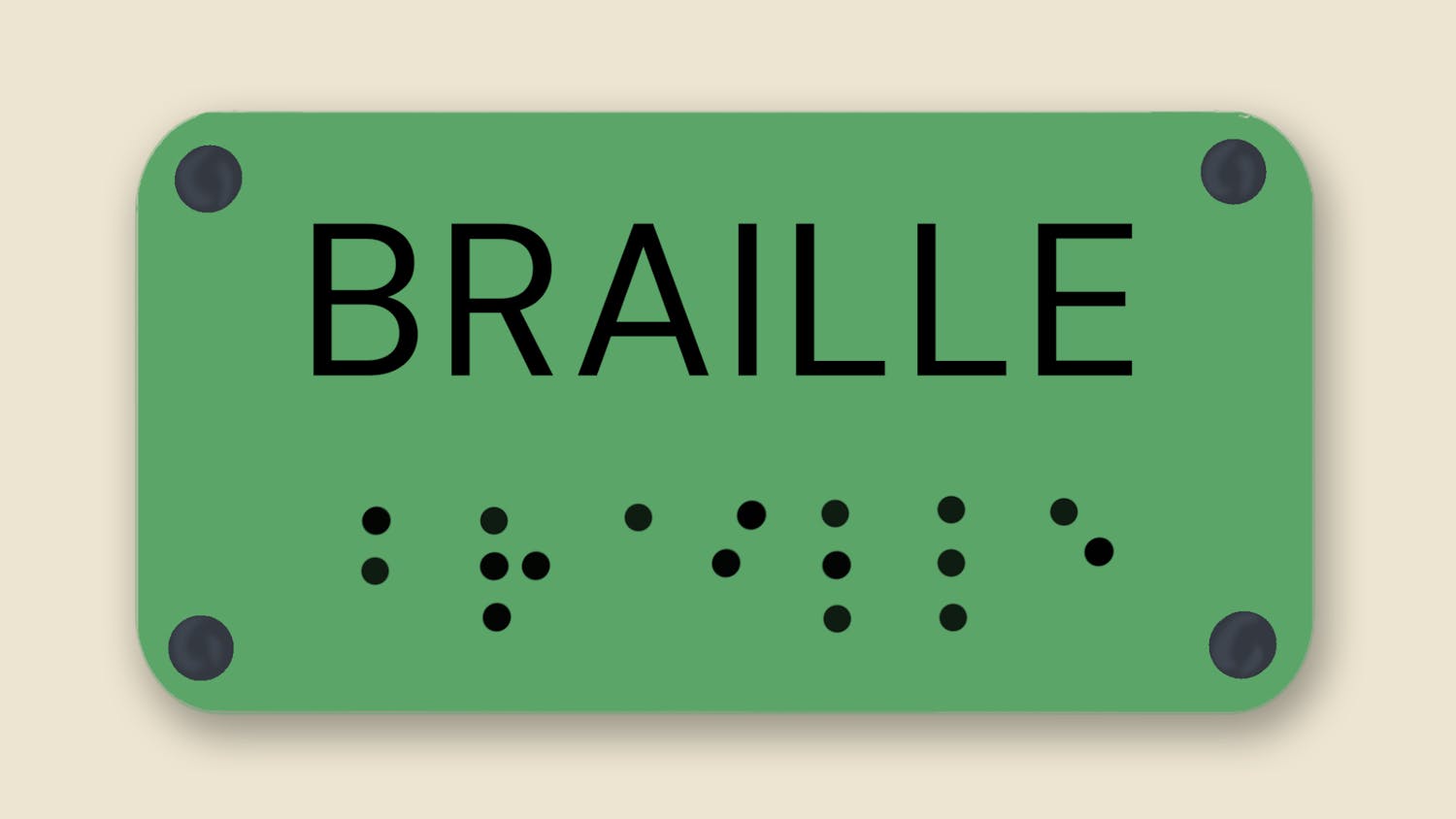The primary election has 14 races on the ballot in Alachua County. But if precedent proves correct, most Gainesville residents won’t cast a vote in a single one.
Despite the key positions on primary ballots, only 25% of registered Alachua County voters cast their ballot in primary elections in the past 10 years on average — only slightly higher than the state average of 23% in the same timeline. Low turnout is a product of multiple factors, such as Florida’s closed primaries, candidates running on similar platforms and voter apathy.
Though not a deciding race for most nonpartisan races like the general election is, the primaries still hold significance. Brian Marra, a 21-year-old UF history and English senior and president of UF College Democrats, said these elections give voters an in-depth look at every candidate on the ballot.
“In the primary, you really get to evaluate all of the candidates, their messages and what they stand for,” he said.
Some of Alachua County’s most critical races are on this year’s primary ballot. Aaron Klein, an Alachua County Supervisor of Elections Office spokesperson, said many major races on the ballot — like the Gainesville mayoral race and the Democratic primary for the U.S. Senate — makes this primary especially significant.
“There’s just so much for voters to vote on,” he said. “Whether you’re talking about those partisan races at the top of the ballot or several of the more local ones, participation in the primary is really key.”
Primary turnout in Alachua County for the 2020 presidential election was almost 33% — the highest since 1996, the first year listed on the Supervisor of Elections Office’s website. Only the 2002 and 2004 primaries had a turnout above 30%. Meanwhile, turnout for the general election hasn’t slipped below 50% since 2010, and it exceeded 80% in 2006.
With no high-profile presidential election to draw voters to the polls, midterm elections post especially low numbers. Turnout in Alachua County was just below 27% on average in the last three presidential general election cycles, but it only reached 23% on average in the last three midterm cycles.
Florida presents the barrier of closed primaries. In these elections, only voters registered with a party can vote in partisan elections, meaning voters with no party affiliation must sit out in key races.
Florida has about 3.9 million registered voters with no party affiliation as of Aug. 17; Chris Finley, a 53-year-old Boynton Beach resident, is one of them.
Though he votes in general elections, Finley will not vote in Palm Beach County’s primary election. He’s always waited to vote in the general elections because he identifies as an independent.
“I look at each candidate when they come up, and I make a decision based on the candidate and not the party,” he said.
Of the 179,389 registered voters in Alachua County, 42,093 of them are not registered with a party. For 23% of the county’s registered voters, voting in the primary isn’t a matter of whether they will — it’s a matter of whether they can.
Though Florida’s closed primaries prevent independent voters from voting in some races, the structure of primaries can also discourage those who do identify with a party from casting their ballots. Michael Martinez, a UF political science professor, said primaries don’t allow voters to vote along party lines like they’re used to.
In partisan races — like the elections for the 3rd Congressional District seat of the U.S. House of Representatives and the 22nd State House District seat on the Florida House of Representatives — voters still tend to vote for their party’s candidates. In the 2020 election, for instance, 95% of registered Democrats who voted in the election voted for President Joe Biden, the Democratic nominee, while 94% of registered Republicans who voted in the election voted for former President Donald Trump, the Republican nominee.
Though many attribute this to a spike in political polarization, a more rigid party system is at play, Martinez said. As parties become more defined in their ideologies, voters align themselves more securely with a single party and rarely vote outside party lines, he said.
“What looks like people being polarized is really people sorting themselves out into the ‘correct parties,’” Martinez said.
Primaries, then, present a dilemma to this strategy: Party-line voting is obsolete when the candidates are members of the same party.
Beyond independent voters, college students are another key demographic that might not deliver when it comes to primary voting. New students moving into Gainesville may not be prepared to vote in the primaries so soon after their arrival, Klein said.
“They may be used to those representatives and those office holders in the counties they’re from, and so they’re acclimating to Alachua County,” he said.
UF welcomed nearly 15,000 students to the class of 2026, and most moved to Gainesville just days ago. Many may still be registered in their home counties or not be registered to vote at all. Klein encourages them to register to vote in Alachua County, which they can do through the Supervisor of Elections website.
Despite a historically low turnout, candidates and campaigns are hopeful the significance of this year’s midterm election will drive voters to the polls. Early voting numbers already check in at more than 16% as of Monday.
Janet Heffner, a 65-year-old Gainesville resident, accounts for one of those early voting tallies. She submitted her mail-in ballot earlier last week.
Heffner said the issues in this election — particularly those in education — were too important to ignore.
“There are so many issues facing the school district and the city right now,” she said. “I think the future is very important.”
Contact Heather at hbushman@alligator.org. Follow her on Twitter @hmb_1013.

Heather Bushman is a fourth-year journalism and political science student and the enterprise elections reporter. She previously wrote and edited for the Avenue desk and reported for WUFT News. You can usually find her writing, listening to music or writing about listening to music. Ask her about synesthesia or her album tier list sometime.






